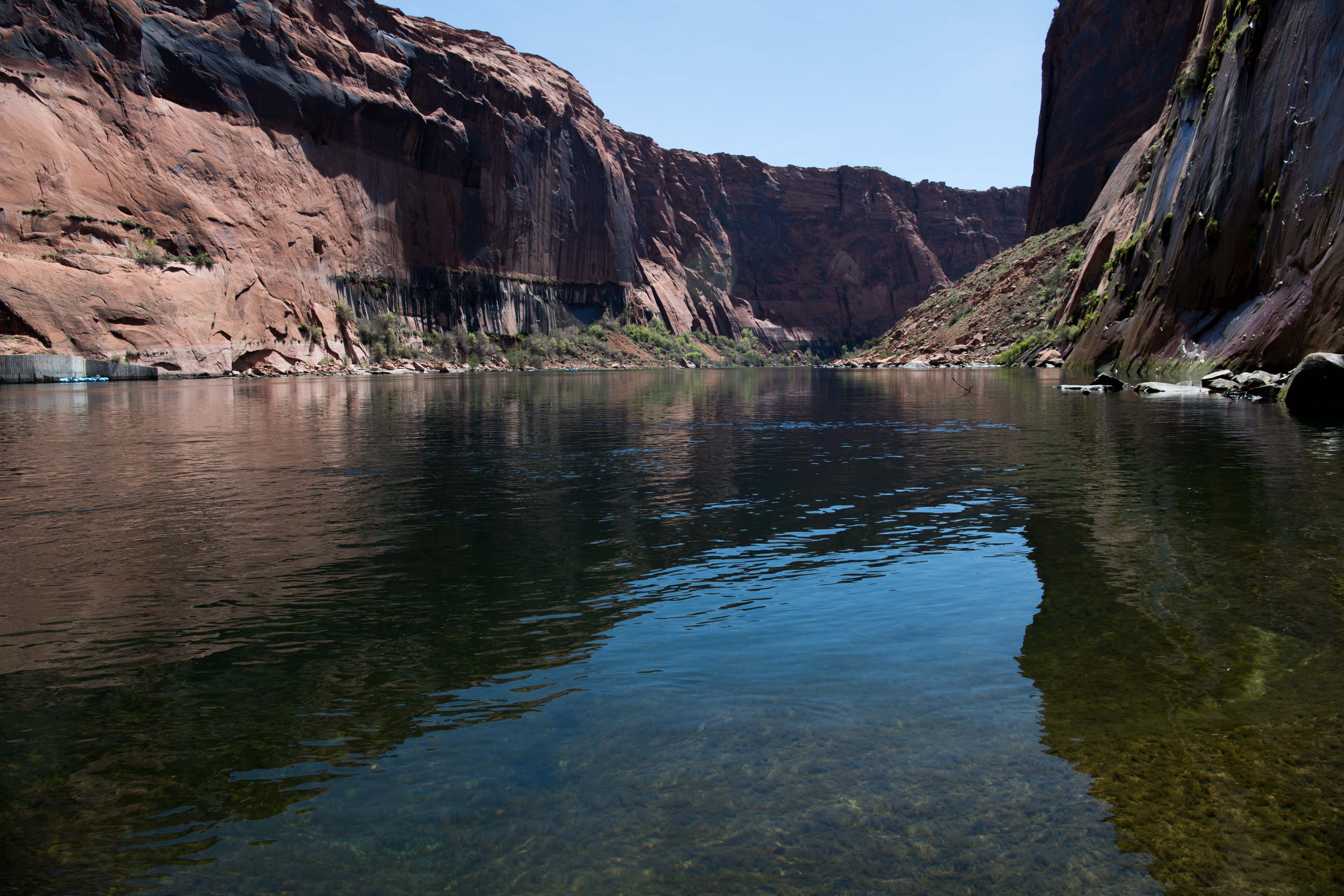Importance of Indigenous Inclusion in Water Management
By undergraduate research assistant, Dustin O'Brien
Throughout my internship with the Climate Adaptation Scientists of Tomorrow (CAST) program, my goal was to conduct a literature review of different research articles on co-production with Indigenous populations. This was to help supplement a project on Sense of Place research on drought and water management in the Intermountain West, which previously lacked input from Indigenous communities. The research I synthesized will help guide the process for a Community of Practice across different rights-holder and stakeholder groups in the Colorado River Basin, aiming to create equitable water management decisions that maintain Sense of Place in the region.
The history of removing Indigenous peoples from the land and excluding them in water management decisions highlights the need for new co-production efforts. The policies that make up Colorado River legislation, originally beginning in 1922, were created without negotiations with Tribes, leaving their water rights unconsidered. These laws work to enable settler colonial theft and have led to inequitable and genocidal practices throughout history. In the modern-day, continuing to leave out Indigenous peoples in water usage decisions corroborates the ongoing structure of colonialism which has led to the need for water settlements—contributing to current issues surrounding the lack of access for freshwater in Indigenous nations of the Colorado River Basin. It is important to work towards rectifying historical injustices by preserving and strengthening Indigenous Tribal sovereignty, which includes restoring access to their ancestral lands and waters which the United States government and settler colonists expropriated in violation of multiple treaties.
The construction of dams and reservoirs often flooded Indigenous homelands, destroyed Tribal peoples’ food systems, and forced them into lives of wage-labor that fit with the mission of the United States– capitalism and the assimilation of Native peoples. Most of the laws around water usage were created without due process, leaving out negotiations from Tribal peoples and allocating water to unsustainable settler-colonial settlements, which can still be seen today. Currently, Indigenous peoples’ water rights, which should be prioritized given the States Doctrine of Prior Appropriation, are often neglected. Prior appropriation states that the first people that used the water get the first right to the water in the future (“First in time, first in right”); yet the law as a non-neutral actor often works to benefit settler-colonial institutions and interests, neglecting and infringing on Indigenous peoples’ rights to water and other resources (Walcher 2021).
Walking into my first day, I felt dazed. Knowing what I knew about Sense of Place before coming into the project (very little) made the entire experience completely unfamiliar... and intimidating. I assume that whoever’s reading this also knows very little of Sense of Place– basically, the idea around how one is psychologically, spiritually, and physically connected to a place. The project focused on how this idea can influence adaptation during climate changes, especially in drought-prone areas like Colorado. I had a feeling I would like the societal aspect of the research, since justice is the side of science I’m particularly interested in. Yet I walked in knowing nothing, and quickly learned that the work I’d be doing would not be particularly social.
I was assigned to read a folder full of 30+ academic articles on Sense of Place my first week. I got through 8 of them and felt emotionally and physically exhausted. You’ll never guess what I did my second week. I was assigned to read more academic articles! This time, I got through them, but not without needless hours spent with my back arched over a keyboard at coffee shops, libraries, desks, and couches. I felt like I was getting a grasp, but still had no idea how to plug into the work. Nor how to solve my back problems. As time went on, I realized how I could plug my studies into the project. Studying Indigenous and Environmental Studies showed me the implications of the divide between colonial institutions and Indigenous ways of knowing and being, and I was able to better create outlines and ways to bridge the gaps between the research and the Indigenous peoples that they originally left out.
As a descendant of settler-colonialism, my family’s track record hasn’t always been clean. But the historical and contemporary injustices that infect racialized peoples in the United States wasn’t something I was comfortable ignoring. I felt drawn to try to bridge some of the gaps, to create a sense of equity, but ran into some roadblocks. I think a lot of people shy away from working with Indigenous peoples because of the muddled history, but I think it’s important to face the discomfort head on. Otherwise, the change the world desperately needs will never happen. Decolonizing academia, a notoriously colonial place, is no easy task, and it is not a comfortable task either. But that makes it all the more important that people do it, and that it doesn’t just lay in the hands of Indigenous peoples to do it.
Working on a project aimed to identify Sense of Place in reservoir communities felt difficult, given the historical and systematic dispossession Indigenous peoples for said reservoirs to be built. Luckily, my supervisor was welcome to my feedback and provided leeway to implement equitable ways of co-production with Indigenous peoples into the conversation around water management. At the time of writing this, I’m working on a synthesis article on how to go about this so that while I’m gone, a GRA will be able to continue the work.
I’m excited to see how the project continues to grow while I’m gone. In addition, I’m looking forward to working next summer on the project and developing the co-production methods further. It’s always hard to leave a project the second you start to feel like things start to click, but I know I’ve laid the foundation for a good year, and a good next summer where I will hopefully further plug into the project.
About the Author:
Dustin O’Brien (he/they) is an Indigenous Sustainability Studies and Spanish major at Bemidji State University. He is originally from Minnesota and is working on the Sense of Place project for the next two Summers with Karen Bailey through the Climate Adaptation Scientists of Tomorrow program. They are broadly interested in environmental and transformative justice and creating co-production efforts that are grounded in equity. In Dustin’s free time, he likes to draw, create music, read, and spend time outside with his dog. Dustin is also working with the Rocky Mountain Peace and Justice Center as a Communications and Outreach Coordinator, where they advocate and increase awareness around the Rocky Flats Greenway Project and the effects of nuclear contamination. He is passionate about creating local solutions to wide-scale issues and is excited to expand his work into both academic and non-academic spaces.



